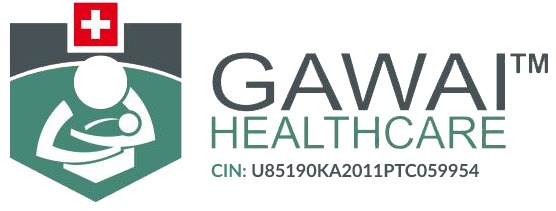
Vertigo
Vertigo is a symptom where a person feels as if they or the objects around them are moving when they are not. Often it feels like a spinning or swaying movement. This may be associated with nausea, vomiting, sweating, or difficulties walking. It is typically worse when the head is moved. Vertigo is the most common type of dizziness.
Vertigo can be classified into:
- Peripheral: Vertigo that is caused by problems with the inner ear or vestibular system, which is composed of the semicircular canals, the vestibule (utricle and saccule), and the vestibular nerve is called “peripheral”, “otologic” or “vestibular” vertigo. The most common cause is benign paroxysmal positional vertigo (BPPV), which accounts for 32% of all peripheral vertigo.
- Central: Vertigo that arises from injury to the balance centers of the central nervous system (CNS), often from a lesion in the brainstem or cerebellum, is called “central” vertigo and is generally associated with less prominent movement illusion and nausea than vertigo of peripheral origin. Central vertigo may have accompanying neurologic deficits (such as slurred speech and double vision), and pathologic nystagmus (which is pure vertical/torsional). Central pathology can cause disequilibrium which is the sensation of being off balance. The balance disorder associated with central lesions causing vertigo is often so severe that many people are unable to stand or walk.
Definitive treatment depends on the underlying cause of vertigo.[9] Ménière’s disease people have a variety of treatment options to consider when receiving treatment for vertigo and tinnitus including a low-salt diet and intratympanic injections of the antibiotic gentamicin or surgical measures such as a shunt or ablation of the labyrinth in refractory cases. Common drug treatment options for vertigo may include the following:
- Anticholinergics such as hyoscine hydrobromide (scopolamine)
- Anticonvulsants such as topiramate or valproic acid for vestibular migraines
- Antihistamines such as betahistine, dimenhydrinate, or meclizine, which may have antiemetic properties
- Beta blockers such as metoprolol for vestibular migraine
- Corticosteroids such as methylprednisolone for inflammatory conditions such as vestibular neuritis or dexamethasone as a second-line agent for Ménière’s disease
- All cases of decompression sickness should be treated initially with 100% oxygen until hyperbaric oxygen therapy (100% oxygen delivered in a high-pressure chamber) can be provided. Several treatments may be necessary, and treatment will generally be repeated until either all symptoms resolve, or no further improvement is apparent.

